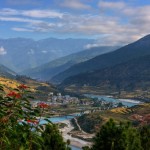Post written by Oscar Zenteno, Global Environmental Law, LLM candidate 2015, Pace Law School
 Globalization has brought great changes to the world. The interconnection of the countries has allowed an ongoing industrialization along with global economic growth, creating more jobs, development of new technologies and has facilitated a cultural immersion. However, boundless development comes at a price – climate change.
Globalization has brought great changes to the world. The interconnection of the countries has allowed an ongoing industrialization along with global economic growth, creating more jobs, development of new technologies and has facilitated a cultural immersion. However, boundless development comes at a price – climate change.
Climate change is the alteration of the global climate patterns attributed to the increased levels of carbon dioxide in the atmosphere due to the overuse of fossil fuels. The high levels of carbon dioxide along with others heat-trapped gases in the atmosphere cause the heating of the planet triggering several impacts globally such as the melting of the glaciers and thereby sea level rise, droughts, rainfalls and floods. These consequences stem from the lack of human ability to establish a proper balance between development and environment. Climate change is a “disease” that is killing the planet constantly; a disease caused by us. Just a few paradises remain silent waiting the arriving of industries.
Bhutan, “Land of the Thunder Dragon” is an oasis located in the lap of the Himalayas and between two of the largest CO2 polluters in the world, China and India. Bhutan is a constitutional monarchy with a unitary parliament and the last standing Buddhist Kingdom in the world. The protection of the environment is one of the fundamental foundations of its constitution. This country is unique in that is the only country in the world which has Gross National Happiness instead of a Gross Domestic product as a policy, thus having as one of their fundamental pillars the conservation of nature. Bhutan is considered to be one of the happiest countries in the world along with a great biodiversity. It has 770 species of birds, 5,500 species of plants and 165 species of mammals. Therefore, unlike the rest of the world, economic growth is not a priority.
The environmental policies in Bhutan are remarkable. More than 74% of this country is cover by forests, the largest forest coverage within the Asian nations. In addition, 26% are declared as protected areas. It is the first country to attain the goal of 100% organic agriculture. Furthermore, this environmental paradise launched a Poverty Environment Initiative Program in 2007. It is a plan supported by the United Nations in order to integrate environment, climate and poverty within the government policies. Additionally, the Carbon Neutrality Strategy launched by the government in 2012 makes Bhutan one of the few countries in remaining carbon-neutral and therefore a sink for greenhouse gases.
Bhutan is an example for the world, where humans and nature coexist having a regulated harmonization between development and environment, allowing a perfect balance to reach a green development. Climate change is a real threat that should be taken more seriously. If measures are not undertaken soon, paradises like Bhutan would be just a memory and new generations would have to face a world under water without any remaining paradises.